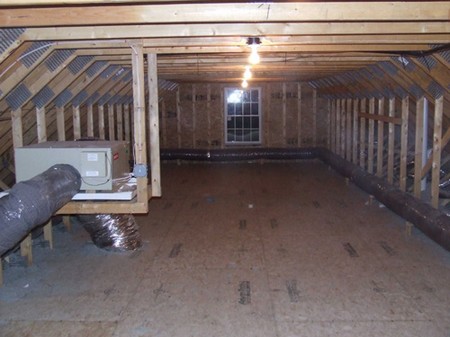Whether you like putting things away or not – and who does? – it is impossible to tidy up if there is nowhere to put anything. Some people, even when they have plenty of cupboards, never manage to keep their home tidy. They find it easy to take a book off the shelves and impossible to put it back – and they are not helped if the shelves can only be reached with a stepladder.
Having enough storage space does not mean that everything has to be put away. An over-tidy home neither looks nor feels very welcoming. But too much clutter means it is impossible to do anything without moving something first. There is a balance between the two and one that you will feel at ease with when you find it.

Before you begin cleaning or attempting to tidy up your home you must first have somewhere to put things. Everything in your home should have its own space which is easy to get at; otherwise there is no incentive to be tidy. If you have to move a heavy mattress out of the way before you can open the ottoman to find the blankets stored there, you will never use it. First decide what you need to store and then buy or build a unit to house it. If you have a collection of vinyl records, you may get in touch with companies like Boombox Storage to find the best self storage solutions and climate controlled storage units for these items.
Most items are best kept off the floor, so it can be vacuumed or cleaned easily, and shelves and cupboards that do not require you either to stretch or to stoop are by far the most tempting to use.
When to get rid of things
Some things are just dangerous to keep: old medicines and food long past its expiry date should be thrown away. So should shoes that cannot be resoled and which no longer give your feet any support. Old catalogues can be a disappointment when the prices have soared and the goods are unavailable. There is a philosophy that says whenever you buy anything new you should throw away whatever it is replacing. Most of us would find that difficult, if not impossible, to follow, but we can try.
It may help you to get rid of possessions you have not used for at least a year if you sell them or give them to charity, rather than just throw them out. Most charity shops are very keen to have anything you no longer need. Old magazines might be welcomed by hospitals and old toys by children’s hospitals; most clothes, unless they are rags, are also useful for resale although often shoes are not.
If you are lucky enough to own or find some beautiful pieces of furniture that can be used effectively for storing things, keep them. They can be moved from wall to wall, room to room or even home to home and will always add visual interest. The disadvantages are that they are not usually as space-efficient as built-in furniture and can be more difficult to clean.
Some free-standing furniture is specifically designed for one-room living where space is at a premium. Convertible sofa-beds can be found with extra space in the base for storing bedding. There are tables that drop down from the wall for meals which can be pushed back up again afterwards and chairs that can be folded and hung on the wall.